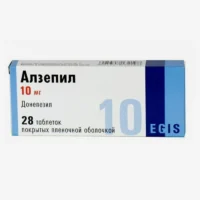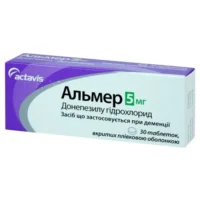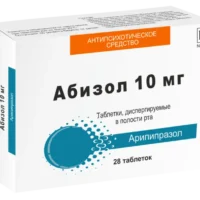Description
Melipramin (Imipramine) Coated Tablets 25 mg. №50 Vial
Ingredients:
Each coated tablet contains 25 mg of imipramine hydrochloride as the active ingredient. Other ingredients include lactose, maize starch, povidone, and magnesium stearate.
Dosage:
The usual starting dose for adults is 25 mg taken 3 to 4 times daily. Dosage may be adjusted based on individual response and tolerance.
Indications:
Melipramin (imipramine) is indicated for the treatment of depression and enuresis (bedwetting) in children.
Contraindications:
Avoid Melipramin if you have a history of hypersensitivity to imipramine or other tricyclic antidepressants. Contraindicated in recent myocardial infarction, glaucoma, or urinary retention.
Directions:
Take Melipramin tablets orally with or without food. Follow the dosage instructions provided. Do not exceed the recommended dose.
Scientific Evidence:
Imipramine, a tricyclic antidepressant, increases serotonin and norepinephrine levels in the brain, regulating mood. Studies show its efficacy in depression treatment, with a meta-analysis indicating superiority over placebo.
Additional Information:
- Store Melipramin tablets in a cool, dry place away from sunlight.
- Avoid abrupt discontinuation to prevent withdrawal symptoms.
- Contact your healthcare provider if you experience unusual side effects.





